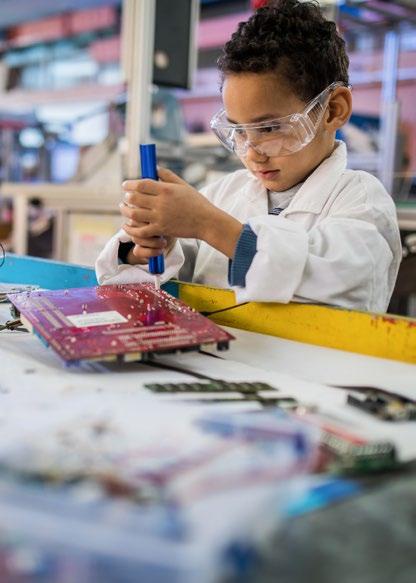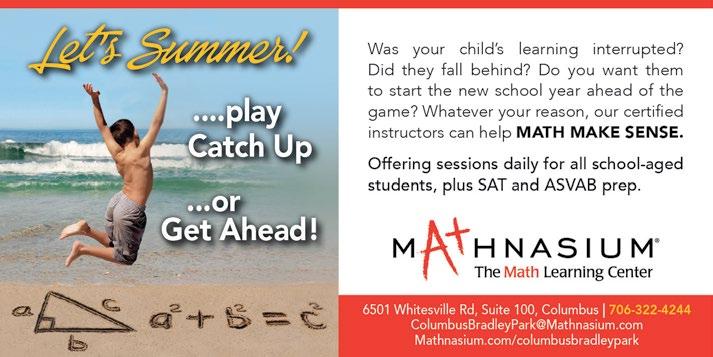










Many parents feel that they are constantly drawn into debates with their children. Kids have a desire to have some control over some of their decisions but may also question the reasons behind the house rules and boundaries you have set. Often, the cycle of arguments centers around a certain trigger or time of the day. Here are some tips on ending the unhealthy cycle of debates with your child.
The behavior of adults around them is a strong influence on children. If they hear you constantly arguing and debating loudly with other adults in your household, kids will assume that this is an appropriate way to resolve disagreements. When you feel yourself becoming emotional about a topic, delay engaging in a discussion about it until you feel you can discuss the topic in a calm, civil manner.
In addition, if your child is frequently around adults who argue in a hostile, heated manner, reduce your child’s exposure to those adults if they refuse to modify the way they act around your child. If your child’s friends argue with adults and with each other in a hostile or even threatening manner, inform your child that you do not want your child socializing with those friends if they are going to act disrespectfully.
It takes two to argue. If you feel that you are always debating with your child, take a look at the boundaries you have set for
him. Kids need boundaries and rules to protect their safety and health, and there is no room for debate over these boundaries. However, they do need some freedom, on an age-appropriate basis, to make some of their own decisions that do not involve health and safety. It hurts when you see your child make mistakes, but if you make all his decisions for him, your child will not be able to learn that a poor choice has consequences.
When you do need to engage, speak calmly. Also, be aware of your own ‘triggers.’ Often the arguments occur during certain times of the day when everything feels rushed and stressful, such as when you are trying to get everyone out of the door in the morning on time. If you know that you are more likely to react strongly to a debate during a certain time of the day, indicate to your child that you will discuss the topic at another time. Some find it helpful to use an alternate form of communication, such as writing a note, to express a thought when emotions are running high and then discuss it later.
Teach your child how to respectfully disagree by calmly asking questions that help determine the root cause of the disagreement. Do not raise your voice or allow your child to raise his voice.
Disengage from a discussion that becomes heated and tell your child you will discuss the decision again when he can speak respectfully. Make it clear that making threats or becoming violent will not be tolerated.
Once you begin your discussion, listen carefully to what your child has to say about the topic before responding. You may find that the root cause of the disagreement stems from a general lack of control over decisions that are important to him. If what your child is asking for is not acceptable, provide him with a couple of alternate choices that are acceptable to you. This will help your child feel he has some control over the issue.



While it is true that every child is unique, there are some things that both girls and boys need from their mothers.
Your son needs to know you love him and are there for him. Even if your son is disobedient and pushes you away, let him know you still love him and are still there for him. Tell him that once the strong emotions have calmed down, you are ready to listen to what he has to say. When that time comes, your son needs you to put all distractions away and focus on what he is saying to you.
Keep reminders brief. Instead of launching into a lecture about what you want your son to do, keep instructions to the point.
Let your son make some of his own choices. Set reasonable boundaries and leave him room to make age-appropriate decisions. For example, if your son wants to grow his hair out some, consider letting him do so as long as it is clean and properly cared for.
by Linda Ligon, Family & KidsYour daughter needs to know you love her and support her. Even if her dreams and aspirations sound a little lofty, it is important to listen to what your daughter has to say without passing judgment. She wants you to provide advice and guidance. Let your daughter know that you have confidence in her and feel strongly that she can achieve her goals, but you expect her to put forth the effort to reach them.
Your daughter needs you to demonstrate integrity. Your daughter is learning morals and values from you and needs you to demonstrate the values and morals you wish her to have when she is an adult.
Your daughter needs you to parent. However, remember that while you need to be present for her, you are not trying to be her best friend. You both will want to keep that boundary intact. You are your daughter’s role model and there to set an example of mature, adult behavior and to parent your child by providing structure and enforcing boundaries you have set for her.

Endurance is defined by trainers as the amount of time your body can perform a certain action. Increasing endurance is the goal of many parents, who want to be able to keep up with their kids along with meeting their own fitness goals on a daily basis. There are two types of endurance, muscular endurance and cardiovascular endurance, and both are important.
Building muscular endurance helps you make it through a long session involving repetitive motions, such as a long hike or a weightlifting session. Cardiovascular endurance is the ability of your cardiovascular system, which includes your heart, lungs and blood vessels, to sustain activities such as running, biking and swimming.
During strength training workouts, build muscular endurance by performing more reps {12 or more) with lighter weights. Gradually increase the intensity of your workout by increasing the volume (the amount of weight lifted during the workout, calculated by multiplying the number of reps times the weight). Reduce rest time between sets. Strength training sessions with a higher volume also help build cardiovascular endurance because they require your heart and lungs to work harder.
By Linda Ligon, Family & KidsBuilding strength also helps with endurance. Good core strength helps you have the support you need to push through the last part of a difficult hike or run. Gradually build core strength by increasing the intensity of your weekly ab workouts. Try yoga or a ballet class.
Try going on long walks. If you are a beginner, start out with 30-minute walks a few times a week. Build up to longer 40- or 60-minute walks. If you want to add intensity to your workout, gradually add short running intervals or even high-intensity hill sprints. If you are interested in running, build endurance by gradually increasing your distance and speed over time.
Allow yourself a recovery day to rest. You can still move during a recovery day but keep the exercises low intensity and get enough sleep.
Before starting a new exercise routine, consult your doctor and a personal trainer to see if it is right for you. Increasing the intensity of your workout too quickly can lead to injury.





Well-child & School Exams
Hearing & Vision Exams
Infant, Child & Adolescent Care
Dental Screening & Treatment

Immunizations Sports Physicals Free Transportation Free Medication Delivery


“Every child needs nature. Not just the ones whose parents appreciate nature. Not only those of a certain economic class or culture or set of abilities. Every child.” - Richard Louv
An increasing number of studies have shown the importance of the outdoors in a child’s everyday routine. Time in nature has proven to be good for the mind, body, and soul. In the hustle and bustle of school, work, and extracurricular activities, our schedules already feel so full! Adding one more thing can feel overwhelming. But even just a few minutes each day can become a beautiful habit of weaving nature into your child’s day.
One easy way to start is to look up more often. We look down so regularly that we can miss everyday moments that can spark wonder in our children! As you walk your child into daycare, look up to notice the way the sun shines across the glass. Talk to them about the reflection of that light. Notice where the sun is in the sky.
As you usher your child across the parking lot to the grocery store, look up to see the bird nest that’s carefully tucked inside the letters of the store you’re entering. Talk to your child about how birds make homes.
As they grab a snack during practice, ask your child to notice the ladybug that landed on the bleachers. Talk with them about how those are the good bugs that help eat pests that destroy gardens or count the spots on its shell.
There are numerous ways to begin the daily practice of noticing more in nature with your children. Something as simple as a walk to the mailbox can be a springboard for conversation and curiosity.
Chattahoochee Adventure Co provides several outlets for your child to learn from and in nature such as our weekly Learning Co-Op where our city is the classroom; Mud Kitchen which meets biweekly for texture-based play; and Wild World Primary School for teacher-led outdoor learning starting this fall. Visit us at chattadventure. com for details.
It is normal for siblings to sometimes have disagreements and have difficulty getting along. ‘Sibling rivalry’ exists at every age and stage of development and there can be many different reasons behind it.
Very young kids are still developing social skills and learning to communicate thoughts and feelings. They may turn to behaviors such as snatching toys or hitting when frustrated. Toddlers and preschoolers may also feel insecure when a new sibling arrives or the family goes through a big change, such as a move, and seek attention by starting squabbles with siblings.
What you can do: Avoid stepping in all the time to break up and resolve disagreements. Instead, coach your preschooler through the process of resolving the conflict with her sibling. Teach your kids to separate and take a ‘cool down’ break when emotions run high, instead of hitting, pushing or yelling. Once everyone has cooled down, help your kids work out the issue, but be careful not to take sides. Teach kids to express their feelings with statements such as ‘It makes me angry when you take my toy’ and to then listen to what their sibling has to say.
When your family experiences a big change, such as a move or the addition of a new sibling, take some steps to prepare your child ahead of time. To prepare your young child for a new sibling, talk about what it will be like when the new sibling arrives. Explain that newborns need a lot of care, but you will still have time to spend with her. After the arrival of the new baby, find age-appropriate ways to involve siblings in the care of the new baby, such as handing you a diaper or a bottle. Spend some time alone each day with older siblings while the baby is sleeping.
School-aged kids are focused on equal treatment and ‘fairness.’ They may also feel that they are competing with siblings to make the best grades or perform well in sports. If a child has a special needs sibling who needs a lot of extra attention, she may resent her sibling. A certain level of sibling rivalry is normal for kids this age and teaches kids how to resolve conflicts. However, kids sometimes feel a level of competition that is stressful or unhealthy, or the conflicts sometimes degrade into name-calling and other bullying behavior.
What you can do: Stay neutral and do not play favorites. Avoid comparing your children to one another or labeling them. If you feel that the competition between siblings has become unhealthy, step in and help each of your children find her unique strengths. Help her focus on her strengths, instead of comparing herself to her sibling.
Celebrate each child’s strengths, interests and talents, even though they may not match your own. Sometimes it is possible to be biased towards a child who shares your interests, without realizing it. Schedule some time alone with each child doing something she enjoys. If you do need to spend more time with one of your children due to a medical reason or a special need, talk with your child about it. Explain the medical condition and why it requires you to spend more time with her sibling.
Set some house rules for how siblings are to treat each other. Bullying behavior is extremely harmful and should never be tolerated. Set consequences for name-calling and other bullying behavior. If you have difficulty bringing sibling rivalry under control, seek help from your child’s doctor.
By Linda Ligon, Family & Kids

MONDAY
Barberitos
Free kid’s meal with adult entrée after 4pm
Sapo’s
5-8pm: Free kid’s meal with adult entrée
The Office
4-9pm: Kids 12 and under get a free kid’s meal with each adult entrée. Dine in only.
Tuesday
Chicken Salad Chick
Free Little Chick Meal with purchase of adult meal
Denny’s
4-10pm: Up to two free kids entrées with adult entrée for kids 10 and under
Ruby Tuesday
5-10pm: Kids 12 and under eat free with adult entrée
Wednesday
Your Pie
Kid’s meal $1.99 (pizza, drink & gelato) w/ adult meal
Red Robin
Kid’s meal $1.99 w/ adult meal for kids 11 and under
Thursday
Tuesday's Street Tacos & Burritos
Free kids meal with adult purchase; dine-in only
Saturday
Denny’s
4-10pm: Up to two free kids entrées with adult entrée for kids 10 and under
Sunday
The Simple Greek
Kids 12 & under get half-off kids bowl with purchase of regular size bowl. Not to be combined
Multiple days
219 On The Lake
5-9pm: Kids eat for $2.19 on kids menu (M-TH)
Bruster’s Ice Cream
Kids under 40” get free baby cone
McAlister’s
Kid’s meals are $2.79 with dine-in order
The Food Mill
Kids receive half off a breakfast egg and cheese biscuit with the purchase of one full price breakfast item (M-F, 9-11am)
All locations are Columbus, GA unless noted. Specials are subject to change without notice, so please verify them directly before dining. Send kids deals to Tammy@FamilyAndKidsGA.com.

Parents, we can use our kids' love for today’s technology to engage their minds, to empower them to explore their curiosities and to allow them to discover the world around them.
Easy-to-do art projects that are suitable even for young (3+) children, from cardboard rolls to bath bombs.
Mystery Doug puts sciences into words and visuals that kids can understand. Each video is about five minutes.
Easy-to-understand videos of simple-to-perform science ex periments, hosted by a young autistic boy, who narrates and does all the experiments himself.
A yoga and mindfulness program made fun for kids 3 and up by using stories and kids' favorite pop culture themes to grab their attention.




This preschool teacher produces baby and toddler learning videos that help children learn to talk, learn letters, numbers, colours, animal sounds and more.
Short videos on interesting topics, from "A Day in the Life" to brainy riddles for kids to solve.





Made with just 4 simple ingredients, and super quick and easy to make, this frozen bark is perfect to serve as a summer snack, dessert, or even for a special breakfast!
1. Line a baking sheet with parchment paper.

2. In a medium bowl, mash one banana. Add in the yogurt and honey (if using) and stir until combined.
3. Pour the yogurt mixture onto the baking sheet and spread with a knife or spatula until you have a smooth layer.
4. Swirl on the peanut butter and sprinkle on the mini chocolate chips. Slice the remaining banana and place it on top of the yogurt.
5. Place the baking sheet in the freezer for at least 5 hours. Take the baking sheet out of the fridge and break the yogurt bark into chunks with your hands.
6. Serve and enjoy.
Courtesy of babyfoode.com HOO’s HUNGRY
• Plain yogurt of choice
• Creamy Nut Butter of choice
• Mini Chocolate Chips
• Banana
• Honey






1

Detention with Ms. Zarves. Families. 4pm. Nord 2 LEGOS®. Families. 4pm. Columbus Library; 706-243-2813
3 Galactic Freedom Fiesta. Teens. 4pm. South Columbus Library; 706-683-8805
3 Friday Night Concert Series. 7-10pm. Uptown Columbus/Broadway; uptowncolumbusga.com
3-4 RiverFest 2024. All Day. Uptown Columbus; 706-596-0111
4 Wings – Silent Film with The Wave Theatre Organ. 7:30pm. $10. RiverCenter; 706-256-3614
4 May the Fourth Be with You! Families. All Day. Mildred L. Terry Library; 706-2432782
4-5 Deep Blue Sea. Sat 11am & Sun 2pm. $16-$21. Springer Actors Arena – Theatre for the Very Young; 706-327-3688
4-5 Cotton Pickin’ Fair. 8am-5pm. $5-$8. Gay; cpfair.org
6Kids’ Art Studio. Ages 5-12. 4pm. Columbus Library; 706-243-2813
7 Adopt a Reading Buddy. Families. 3pm. South Columbus Library; 706-683-8805
7 Little Sprouts. 10:30am. Ages 0-5. $5/ family. Columbus Botanical Garden, 706327-8400
8 MAMA B.E.A.R.S. Breastfeeding Support meeting (part 2). 12:30pm. Columbus Pediatric Assoc; 706-221-4602
8 MOPS (Mothers of Preschoolers) meeting. 6pm. First Baptist Church, Columbus; facebook.com
8 3rd Annual Mother’s Day Tea Party. 6pm. $45. RSVP. Hudson’s at Main Street; 706-507-5384
8 Self-Care with “Sulwe.” Teens. 4pm. South Columbus Library; 706-683-8805
9 Simple Steps Storytime: Sensory Stations. Ages 2-5. 10am. South Columbus Library; 706-683-8805
9 Family Night: “The Princess & the Frog” (G). 4pm. Columbus Library; 706-243-2813
9 Budding Naturalist. 10am. 1st-5th grades. $5-$7. Columbus Botanical Garden; 706-327-8400
11 Closet Cleanout. 9am-1pm. Columbus Trade Center; 706-653-4460
11 Columbus Children’s Book Festival. 10am. Columbus Library; 706-243-2813
11 Jr. Beekeeper Spring Workshop. 10:30am. Oxbow Meadows; 706-507-8550
13 Pony Bead Party. Ages 5-12. 4pm. Columbus Library; 706-243-2813
15
Farmhouse Spring Tea. 11:30am2:30pm. RSVP. The FarmHouse Restaurant, Ellerslie; 706-561-3435
16
Mommy & Me at the Library. 3pm. North Columbus Library; 706-748-2855
16 LEGOS®. Families. 4pm. Columbus Library; 706-243-2813
17 Bee Day. Families. 4pm. Columbus Library; 706-243-2813
18 Family Saturday. 10am. Columbus Museum; 1327 Wynnton Rd; 706-748-2562 ext 6520
18 “Elvis: The King is Back” Concert. 2:30 & 7:30pm. $33-$48. Springer Opera House; 706-327-3688
20 Kids’ Art Studio. Ages 5-12. 4pm. Columbus Library; 706-243-2813
21 Dungeons & Dragons. Families. 6pm. Mildred L. Terry Library; 706-2432782
22 MAMA B.E.A.R.S. Breastfeeding Support meeting (part 2). 12:30pm. Columbus Pediatric Assoc; 706-221-4602
22 End of School Lo-Fi Kickback. Teens. 4pm. South Columbus Library; 706683-8805
22 MOPS (Mothers of Preschoolers) meeting. 6pm. First Baptist Church, Columbus; facebook.com
23 Simple Steps Storytime: Sensory Stations. Ages 2-5. 10am. South Columbus Library; 706-683-8805
23
Family Fun Night: “Hercules” (G). 4pm. Columbus Library; 706-243-2813


PROVIDED IN PARTNERSHIP WITH:


24 Bugs on the Hooch 2024. 8am3pm. Free. National Civil War Naval Museum; 706-527-7365
24-26 Masters Water Ski & Wakeboard Tournament. Callaway Gardens; 800-CALLAWAY
25 Columbus Lions Indoor Football Game. 7pm. Columbus Civic Center; 706653-4460
25
Uno, Dos, Tres Craft! Ages 4-8. 3pm. Mildred L. Terry Library; 706-2432782
28 Rock, Paper, Scissors, STEAM: Soap Science. Ages 5-12. 2pm. South Columbus Library; 706-683-8805
29 Musical Adventures. 11am. North Columbus Library; 706-748-2855
29 Get Your Game On. Teen. 4pm. South Columbus Library; 706-683-8805
29 Seedling Storytime. 10am. $5-$7. Ages 0-2. Columbus Botanical Garden; 706327-8400
30 Passport to Fun! A Library Adventure Series: DIY Explore Gear & Trail Mix Recipes. Ages 5-12. 3pm. North Columbus Library; 706-748-2855
30 LEGOS® in the Library. Families. 4pm. Columbus Library; 706-243-2813
31 Watch & Unwind: Movie & Craft. 10:30am. South Columbus Library; 706683-8805
MONDAY
Simple Steps Storytime: Babies & Toddlers (Ages 0-36 mo.) 10am. Columbus Library; 706-243-2813
TUESDAY
Simple Steps Storytime. Babies & Toddlers (Ages 0-24 mo.) 10am; Preschoolers (Ages 3-5.) 11am. North Columbus Library; 706748-2855
Unplug…For Chess’ Sake! Families. 4:30pm. Mildred L. Terry Library; 706-2432782
WEDNESDAY
Simple Steps Storytime. Preschoolers (Ages 3-5.) 10am; Babies & Toddlers (Ages 0-36 mo.) 11:15am. Mildred L. Terry Library; 706-243-2782
Discovery Hub. Ages 3-5. 11am. Columbus Library; 706-243-2813
Kids’ Corner. 4pm. Columbus Library; 706243-2813
THURSDAY
Toddler Tales. 11am. Barnes & Noble, 5555 Whittlesey Blvd; 706-653-7880
Simple Steps Storytime: Family. Ages 0-5. 10am. Columbus Library; 706-243-2813
Sight Words Support. Families. 3-5pm. 30min. 1 to 1 practice. Mildred L. Terry Library; 706-243-2782
Simple Steps Storytime. 10:30am. South Columbus Library; 706-683-8805
FRIDAY
Simple Steps Storytime: Rhythm & Rhyme. Ages 0-5. 10am. Columbus Library; 706243-2813
Fun Fridays. Families. 2pm. North Columbus Library; 706-748-2855
Friday Night Concert Series. 7-10pm. Uptown Columbus; uptowncolumbusga.com
SATURDAY
Market Days on Broadway. 9am-Noon. 1100 Broadway, Columbus; 706-596-0111
Toddler Time. 10am-Noon. Launch Trampoline Park; 706-221-8680
Please call ahead to confirm dates, times and age-appropriateness, in case changes were made after the info was obtained.








The Youth Orchestra of Greater Columbus (YOGC) is celebrating a milestone achievement of 30 seasons with its current 2023-24 season.
The YOGC was formed in May of 1993 by Lynn Whiddon and Charlyn Kerr, passionate community arts supporters, with a mission to provide higher level musical instruction to area youth. Currently the program serves approximately 90 young musicians, ages 11 to high school seniors, from over thirty public, private, and home schools in Georgia and Alabama. YOGC mentors uplifts and challenges each student, through music, to reach their full potential creatively and as future leaders of our community. Many of our alumni go on to attend prestigious schools of higher learning, studying everything from music to education to engineering. Some continue honing their musical craft and become professional performers – one of our previous students even plays for the Vienna Philharmonic!
"Thirty years of serving the young musicians of Columbus and surrounding areas is an accomplishment, to say the least," says YOGC Executive Director Rachel Morway. "The best thing about this accomplishment is that it will only continue to grow!"

The YOGC caps off its landmark 30th season by celebrating with a special Alumni Reunion Concert on Saturday, June 8. This concert will feature YOGC musicians from the last thirty years and will be conducted by YOGC’s long-standing Music Director and Conductor, Jim Palmer. The event will be held at Old Town’s Green and Town Hall at 7pm with a “Picnic & Pops” theme! This is a family-friendly event, so bring your lawn chair and blanket and enjoy the sounds of thirty years of music excellence and fun.
The week prior to the Alumni Event, YOGC will host its annual Summer String Camp at Rainey McCuller’s School of the Arts on June 3-8. This is a week-long intensive music camp for string musicians in grades 4-12. This fantastic annual summer camp will benefit any string player with at least one year of experience. It’s a fun outlet to keep playing your instrument during summer break and is a great way to experience what the Youth Orchestra of Greater Columbus has to offer!
For more information on these two events and other YOGC program offerings, please visit our website at www.yogc.org.
RESOURCES: www.ncbi.nlm.nih.gov/pmc/articles/PMC6659987/









Scan for more information!

NATIONAL INFANTRY MUSEUM
Full day, Week long camps Ages 6-14










































Most have tried this party trick to inhale helium from a balloon and experiment with how it makes your voice sound funny. But why does it do that?
The sound of your voice varies with frequency. The higher the frequency, the higher the pitch it will have. The frequency of sound increases proportionately with its speed. This is why the pitch of an approaching train whistle is higher than one moving away. Since helium is lighter and less dense than air, sound travels faster through it than through air. When you replace the air in your lungs and mouth with helium and then speak, the sound of your voice is traveling faster than normal. This makes its frequency and pitch higher, making you sound like an alien.

Resource: “The Book of Totally Useless Information" by Don Voorhees
HOO’s learning
aising a little bookworm? Do you struggle to keep your child engaged in reading, or find them overwhelmed by their TBR pile during the Summer? Worry not! There’s a fantastic new tool for parents and caregivers that can help - the free Beanstack app.
Beanstack is your personal reading cheerleader and librarian rolled into one. This free and user-friendly app makes tracking your reading progress a breeze, turning the act of logging books into a rewarding and interactive experience. Dive into its treasure trove of features:
Log your reads with ease. Simply scan a book’s barcode or search for the title, and Beanstack will do the rest. Beanstack keeps track of their completed books, suggests similar reads based on their interests, and even remembers where they left off! No more lost bookmarks!
Join our reading challenges. Beanstack offers themed challenges that pique their curiosity. Encourage them to explore new genres, tackle chapter books, or participate in the Summer Reading Challenge sponsored by Aflac! Watch them earn badges, win prizes, and celebrate reading milestones with a sense of accomplishment.
Connect with us. Beanstack isn’t just about logging books; it’s your link to the Chattahoochee Valley Libraries' vibrant community. Discover upcoming events, explore reading lists, and stay in the loop about new releases.
1. Search for “Beanstack” in your app store.
2. Create your free account and you’re in!
Download Beanstack today and unlock a world of reading possibilities!
3. Enter the Chattahoochee Valley Libraries' code or location to unlock all the challenges and community features.
4. Scan your books, browse recommendations, and dive into the world of Beanstack!
Remember, every page turned is a victory. Beanstack helps you celebrate each book your child reads whether it’s a childhood classic or a modern masterpiece. So, grab your favorite book, download Beanstack, and get ready for your summer reading adventure that begins on May 11!
Learn more at cvlga.org! Happy Reading!

Encephalitis is an inflammation of the brain that is often due to a viral infection (infectious encephalitis) but can also be caused by autoimmune conditions (autoimmune encephalitis). The inflammation of the brain caused by encephalitis leads to a swelling of the affected brain tissue.
The introduction of vaccines to prevent measles, mumps, chicken pox and rubella helped reduce the number of encephalitis cases that result as a complication of these infections. However, other viruses, such as the herpes simplex 1 and 2 viruses, spread by insects and animals (such as West Nile and Zika), and enteroviruses, which cause gastrointestinal illnesses, can also cause infectious encephalitis. Autoimmune encephalitis occurs when the body’s immune system attacks receptors or proteins in the brain. Researchers are not sure exactly what causes autoimmune encephalitis.
The symptoms of infectious encephalitis often first appear along with the symptoms of the viral illness causing it and then progressively become worse. At first, the illness may feel like the flu, with fever and headache, and then start to include issues with mental status, seizures and trouble moving. In infants and young children, symptoms can include trouble feeding
or trouble waking the infant for a feeding, nausea and vomiting, stiffness that affects the whole body, irritability and bulging at the locations of the fontanels (soft spots) in the infant’s skull.
Autoimmune encephalitis symptoms may develop more slowly than those of infectious encephalitis and are less likely to resemble the symptoms of the flu. Symptoms of autoimmune encephalitis include memory loss, hallucinations, psychosis, muscle weakness, trouble moving and abnormal movement.
While encephalitis is not very common, the condition can lead to permanent damage or, in some cases, death. Early diagnosis is the key to surviving encephalitis and reducing the risks of long-term damage to the brain. Encephalitis is diagnosed using lab tests and imaging studies, such as an MRI. Seek medical attention right away for anyone who is experiencing symptoms of encephalitis.
You can help prevent encephalitis by using good hygiene to prevent catching the viruses that may lead to encephalitis and by avoiding being bitten by mosquitoes and ticks.






